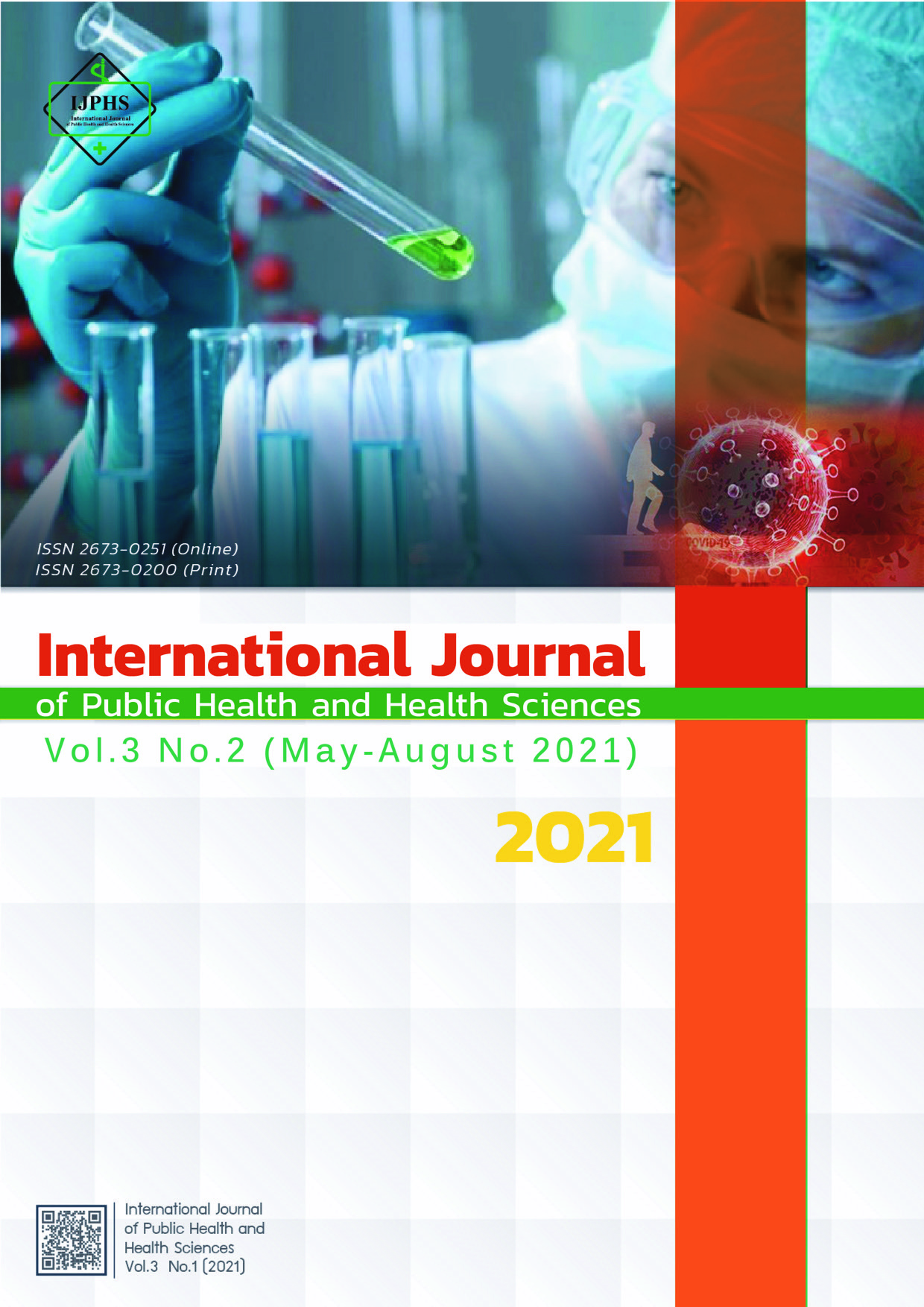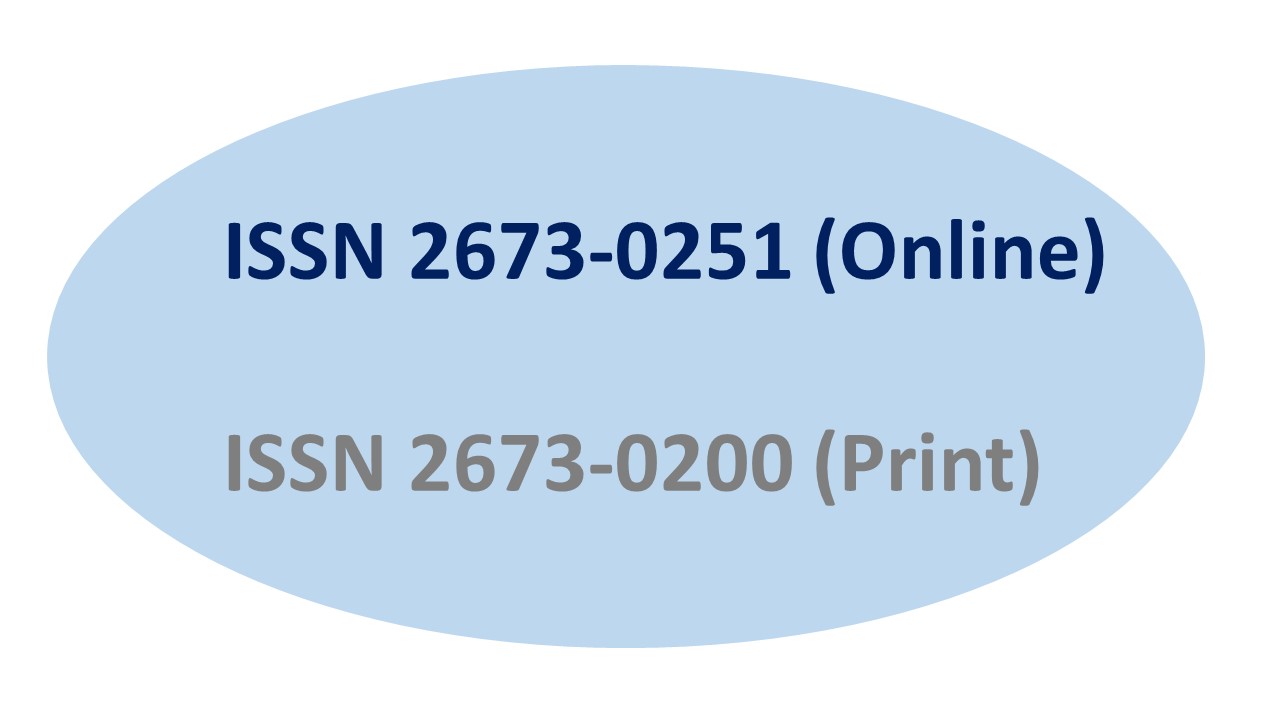Assessment of Households' Practices towards Management of Solid Waste
Keywords:
Assessment, households , practices, management, solid wasteAbstract
Solid waste is the organic and inorganic waste materials such as product packaging, furniture, clothing, bottles, kitchen refuse, paper, paint cans, batteries, etc. Management of solid waste; is the process of collection, treatment and recycling of solid waste in a sustainable manner to avoid the adverse effect on the environment. In Sudan waste management is poor and solid wastes are dumped along roadsides and into open areas, endangering health and attracting vermin. This descriptive cross-sectional community-based study with the aim to assess the practices of the households towards the management of house refuse was conducted in Al-Ozozab, Khartoum, 2019. Four hundred households were selected by multi stage sampling techniques from the community and data was collected by questionnaire and observation checklist. Most types (83.3%) of containers used for waste store were plastic bags. All (100%) of the respondents cover the waste container. Almost all the respondents wash their hands with water and soaps after cleaning. 50.7% of respondents hear about hazardous domestic waste from TV and (19.3%) from radio. More than half (53.3%) of the houses` level of cleanness was very good. Some factors are influncing solid waste practices such as solid waste practices improve significantly with the increase of the age of the households, with married women, with high level of education high monthly income. .It can be concluded that although, (97%) of the waste was transported with governmental body and disposed appropriately at communal sites, the rest of the households members throw waste in any available space including front of houses and in streets.
References
Al-Khatib, I. A., Kontogianni, et al., (2015). Public Perception of Hazardousness Caused by Current Trends of Municipal Solid Waste Management. Waste Management, 36323-330.
Barloa, E. P., Lapie, L. P., de la Cruz, C. P. P., (2016). Knowledge, Attitudes, and Practices on Solid Waste Management among Undergraduate Students in a Philippine State University. Journal of Environment and Earth Science, 6(6), 146-153.
Bezama, A., Agamuthu, P., (2019). Addressing the Big Issues in Waste Management. SAGE Publications, UK, London, England.
Hofverberg, H., &Maivorsdotter, N., (2018). Recycling, Crafting and Learning–An Empirical Analysis of how Students Learn with Garments and Textile Refuse in a School Remake Project. Environmental Education Research.
Kaithery, N. N., & Karunakaran, U., (2019). Study on Attitude of Household Waste Management in a Rural Area of Northern Kerala. International Journal of Community Medicine and Public Health, 6(5), 2095.
King'oo, S. N., (2019). Assessment of Household Domestic Waste Management Practices, Kiambu County-Kenya (Doctoral dissertation).
Kiran K, Kini S, Santhosh N, Kiran NU, (2015). KAP Study of Solid Waste Disposal of Households in Kuttar&Manjanadi Panchayath. Nitte University Journal of Health Science. 5(3).
Laurieri, N., Lucchese, et al., (2020). A Door-to-Door Waste Collection System Case Study: A Survey on its Sustainability and Effectiveness. 12(14), 5520.
Lee, M. S., Hong, S. J., & Kim, Y. T. (2015). Hand Washing with Soap and National Hand Washing Projects in Korea: 2006-2014. Epidemiology and Health, 37.
McAllister, J. (2015). Factors Influencing Solid-Waste Management in the Developing World.
Omar Yousof, M. A., Eltigani Osman, M. O., (2018). Assessment of Municipal Solid Waste Profile of Shendi City, River Nile State, Sudan.
Paes, L. A. B., Bezerra, et al., (2019). Organic Solid Waste Management in a Circular Economy Perspective. Journal of Cleaner Production.
Putnick, D. L., & Bornstein, M. H. (2016). Girls and Boys Labor and Household Chores in Low and Middle Income Countries. Monographs of the Society for Research in Child Development, 81(1), 104.
Sankoh, F. P., Yan, X., & Conteh, A. M. H., (2015). A Situational Assessment of Socioeconomic Factors Affecting Solid Waste Generation and Composition in Freetown, Sierra Leone. Journal of Environmental Protection.
Shahzadi, A., Hussain, et al., (2018). Determination the Level of Knowledge, Attitude, and Practices Regarding Household Waste Disposal among People in Rural Community of Lahore. International Journal of Social Sciences and Management, 5(3).
The World Bank (2019), Solid Waste Management. Available at:
https://www.worldbank.org/en/topic/urbandevelopment/brief/solid-waste-management.
Tekleyohannes, B. (2019). Assessment of Household Waste Management and Hygienic Practice in Yirgalem Town, Dale, Ethiopia. Journal of Health and Environmental Research, 5(2), 41-49.
UNEP, (2015). Global Waste Management Outlook, United Nations Environment Programme, Nairobi, Kenya.
Vickey, (2019). What is Solid Waste – Sources and Classification? Available at:
https://civilengineeringnotes.com/solid-waste-classification.
Wilson, (2015). Global Waste Management Outlook. United Nations Environment programme Available online at: http://www.eawag.ch/fileadmin/Do-main1/Abteilungen/sandec.
Zeng, C., Niu, D., Zhao, and Y., (2015). A Comprehensive Overview of Rural Solid Waste Management in China. Frontiers of Environmental Science & Engineering, 9(6), 949-961.
Downloads
Published
Issue
Section
License
Copyright (c) 2022 International Journal of Public Health and Health Sciences

This work is licensed under a Creative Commons Attribution-NonCommercial-NoDerivatives 4.0 International License.
If the manuscript is accepted for publication, copyright of the article shall be assigned to the IJPHS. After acceptance of a manuscript, the authors will be requested to complete a copyright transfer agreement form







